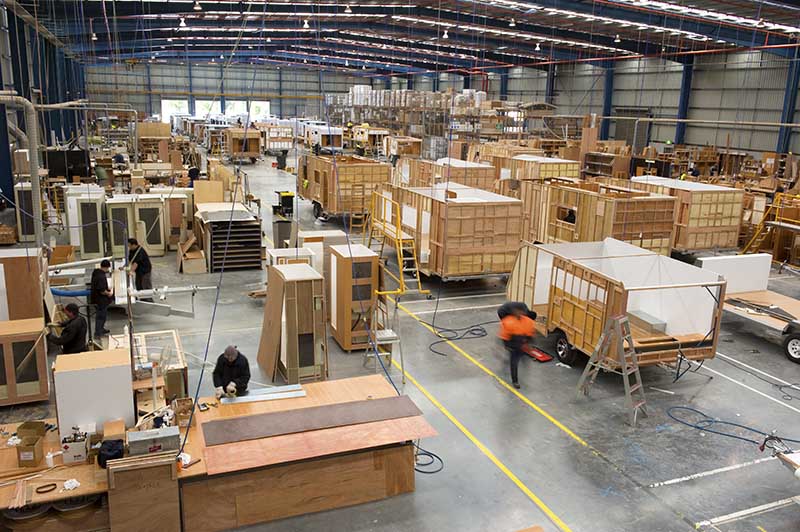 RV compliance has been a topic of some debate for many years. In short, there is a belief that Australia’s RV industry is bedevilled by manufacturers and importers who are releasing to market caravans, motorhomes and camper trailers that do not comply with Australian Standards.
RV compliance has been a topic of some debate for many years. In short, there is a belief that Australia’s RV industry is bedevilled by manufacturers and importers who are releasing to market caravans, motorhomes and camper trailers that do not comply with Australian Standards.
This belief has been given new life in recent months by the establishment of social media forums dedicated to warning the RV public and potential purchasers about allegedly non-compliant or otherwise dodgy manufacturers and importers, and providing support to the victims of these businesses.
Let me be clear. The intention here is not to downplay the difficult time, the emotional and financial hardship, that these people have experienced. I don’t doubt their sincerity and, without going through the detail of each and every case, I do not doubt that there have been unscrupulous businesses operating in Australia’s thriving RV industry that have been very willing to take advantage of their customers, many of whom are people who’ve saved for many years, or cashed out their superannuation, in order to purchase their dream van.
Instead, the intention is to look at what Australia’s RV industry – the Caravan Industry Association of Australia, the industry’s national body, in particular – is doing to address the problem of non-compliant RV manufacturing and, indeed, whether the problem is considered to be as widespread as the rumour mill would have you believe.
BAD APPLES
But first, a necessary disclaimer: I have been an RV journalist for more than 10 years. I own a Goldstream camper (which meets all compliance standards) and, in my experience, I believe the vast majority of Australia’s RV manufacturers strive to do the right thing, both by the letter of the law and by their customers.
I have also come to believe that the industry has been let down by fly-by-nighters, whether they’re importing non-compliant products from Asia, selling it for a song, and then refusing to honour the warranty, or building locally with minimal regard for the Australian Design Rules.
A few bad apples, as they say, will spoil the bunch.
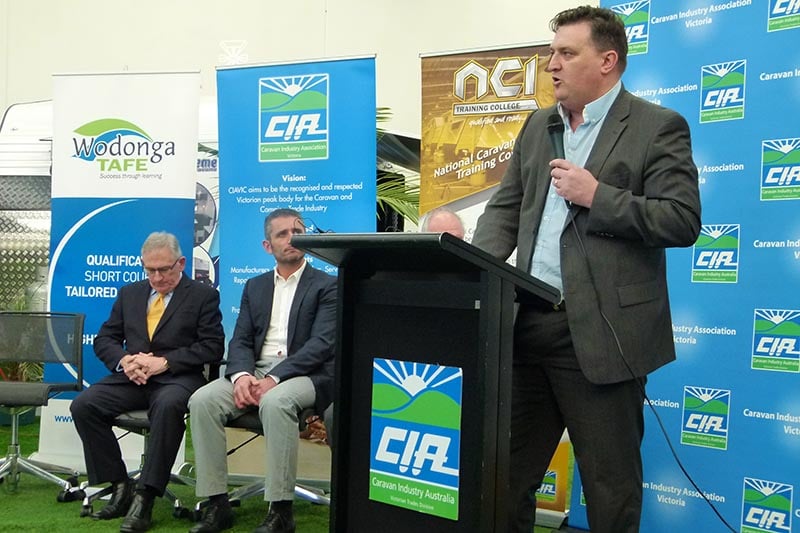
However, it’s fair to say the Australian RV industry has been proactive in improving manufacturing compliance. In August 2013, the association then known as the Recreational Vehicle Manufacturing Association of Australia (RVMAA) introduced the Recreational Vehicle Manufacturing Accreditation Program, widely known as RVMAP.
Administered by the national body, the Caravan Industry Association of Australia, RVMAP is a voluntary program in which to become a member, an RV manufacturer commits to consistently supplying product that adheres to all relevant Australian Design Rules and Australian Standards. They also agree to random inspections by personnel who are well-versed in the legislation. If you’ve shopped for a new van, you might have seen the so-called Accreditation Key on the side of an RVMAP-certified van.
When compliance problems are identified, education and advice is provided to the manufacturer involved. If the problem appears to be common, the national body will provide advice more generally to the industry.
“There has always been a desire by industry associations to improve business performance and provide better outcomes for consumers to protect the reputation of the industry,” Caravan Industry Association of Australia chief executive officer Stuart Lamont told GoRV. “This program and the subsequent launch of the Accreditation Key to symbolise participation in the program and to line up with other accreditation programs across other sectors of the industry was a practical way in which business behaviour could be monitored, while rewarding those businesses that have made a strong statement towards industry compliance.
“It was necessary for the industry to accept some responsibility for oversight of behaviour as, while the federal government has regulatory responsibility for the industry, the ability of product to get to market through a self-declaration process has caused some concern for industry associations and businesses wanting to do the right thing. Under the current legislative framework, there is only a ‘light touch’ regulatory process, which concentrates on safety and risks of injury or death, rather than administrative compliance concerns.”
The industry is therefore lobbying the federal government concerning proposed changes to the Motor Vehicle Standards Act. According to Mr Lamont, the proposed changes would require every RV manufacturer to be registered on a database, with pre- and ongoing certification requirements. This new legislation would give the government the ability to enforce sanctions against non-compliant manufacturers.
“We see this as incredibly positive and have been strongly advocating for this to occur. These changes would provide not only a barrier to entry for new participants (manufacturers) until they fully understand their obligations, but will provide for an online database so that issues can be better reported and investigated,” Mr Lamont said. “Importantly, with a transfer of responsibility back to the government department, we should see swifter and stronger enforcement of the regulations either through fines, the withdrawing of the ability to supply to market, or, in some cases, physical destruction orders, which we, as industry, welcome.
“For the sake of the reputation of the industry, and to provide a competitive environment for industry businesses doing the right thing, this legislation review is long overdue.”
MORE THAN PR
Collectively, the Australian RV industry is obviously aware there is a problem, and that this problem is deeper than a public relations headache played out on the internet. It would be, perhaps, more accurate to describe the actions being taken to address the issues as evolutionary, rather than as a crackdown. ‘Crackdown’ makes for a good headline, but a measured approach is more likely to yield long-term results.
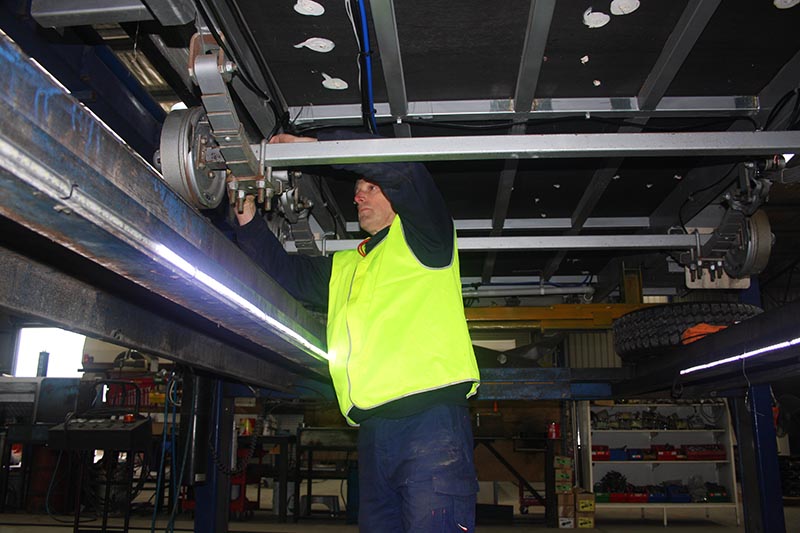
Each year since its inception, more RVMAP inspections have occurred than the year before. In 2016, following modifications to the inspection process, more than 700 RVs were inspected, either at the factory, at an RV show, or other venue where the manufacturer couldn’t ‘prepare’ in advance to skew the results of the inspection in their favour.
As for manufacturers who don’t participate in RVMAP, their products are inspected at RV shows, too. In 2016, there was a 40 per cent improvement in the number of compliance issues identified. Additionally, comparative inspections at RV shows in 2016 and so far in 2017 between RVMAP-accredited manufacturers and those outside of the program have shown a 40 per cent difference in the amount of compliance issues, in favour of RVMAP-accredited businesses. According to Mr Lamont, a number of the compliance issues of RVMAP-accredited businesses were administrative in nature, rather than safety concerns.
With the Australian RV industry taking considered, data-driven steps towards total manufacturing compliance, why has the suggestion that it’s rife with dodgy players gotten such a foothold?
Keir Smith, who is one of the co-owners of Concept Caravans, sits on the Recreational Vehicle Manufacturer’s Advisory Sub-Committee (RMAS). This committee guides changes to RVMAP, including how inspections are carried out. He agrees the public has become more aware that non-compliant vans are being sold and registered.
“If our industry does not strive for 100 per cent compliance for all RV products produced both in and out of the program, we will carry the current stigma the public have about our industry,” Mr Smith said. “Recently, public forums have outlined the holes of our industry and many manufacturers facing problems are not part of the RVMAP program.”
THE STATE OF VICTORIA
Victoria builds about 90 per cent of all RVs in Australia. Therefore, we asked Rob Lucas, the CEO of the Caravan Industry Association of Victoria, how matters of manufacturing compliance could be improved. Aside from inconsistencies between state and national regulations, he believes the regulators need to keep up with the advancing requirements of RVs. “For example, the electrical Australian Standard AS/NZ 3001 has not changed in over a decade,” Mr Lucas said. “In this time, the RV industry has changed considerably, with the introduction of more electrical equipment and electronics.”
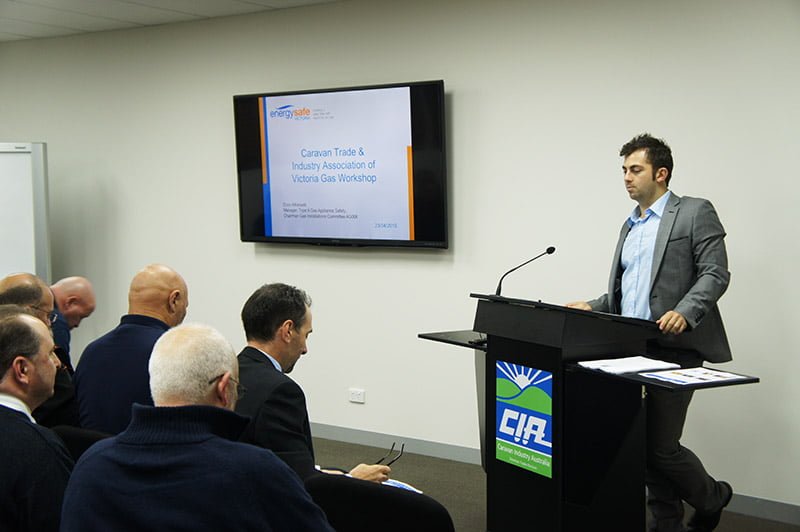
He said there was also no need to have an electrical certificate issued in Victoria, though the CIAV insists they are provided as a condition to exhibiting at the endorsed industry shows. From experience, I know that many reputable manufacturers have their own electricians on staff.
“It would be easy for consumers to assume nothing is being done to improve the performance of the RV industry,” Mr Lucas said. “But this is far from the truth. In fact, the CIAV released in 2012 the Victorian Caravan Industry Blueprint, a 10-year strategic plan for the industry based on improving our overall productivity and performance. After an exhaustive process, the council of the association endorsed 44 action items, all of which are focussed on ensuring the consumer enjoys our products and the experiences that come with the leisure lifestyle, and enhancing the performance of the industry as a whole.”
Mr Lucas also pointed to its establishment of the National Caravan Industry Training College, which has become a division of the association undertaking industry manufacturing training programs and workshops for association members. The idea is to educate them on all aspects of compliance, the importance of these regulations, and the best way to implement them.
“While this program is in its early days, we are seeing a large number of our members attending and getting a lot of out of the workshops,” Mr Lucas said. “Consumers will see the outcomes of our efforts in the not-too-distant future.”
COMPLIANCE AT REGISTRATION
Question: Why is it that non-compliant RVs are allowed to be registered for road travel? By allowing an RV to be registered, isn’t government tacitly acknowledging that the vehicle is actually compliant? Is the self-certification system currently in place really enough?
Mr Lamont believes that “a compromise which balances a practical solution while covering the vast majority of products registered” was better than a strict ‘compliance at registration’ regime, as such a system would require inspections by qualified engineers, adding significant costs to the overall purchase.
“If in conjunction with the federal government, industry can work on understanding and committing to behavioural change, the number of risk instances will be minimised without significant cost imposition on behalf of the consumer,” he said.
THE CAMPER SCENE
In case you hadn’t heard, the camper trailer industry in Australia has been challenged by Asian imports. Now, in and of itself, I don’t think that’s a problem. Competition that spurs lower prices and better quality should be encouraged as healthy and good for the customer. But it is an open secret that there have been some – and I want to be careful not to tarnish all importers with this brush, as that would be unfair – that are non-compliant.
“The biggest issue facing our industry is that Joe Blow can fill out and fit a compliance plate and the trailer then becomes legal until a major accident occurs,” Roger Fagan of the Australian Manufactured Camper Trailer Guild said.
He said that he knew of cases in which false information had been engraved on compliance plates, particularly the Tare weight of campers being understated by up to 80 per cent. In some instances, this has meant the camper wasn’t fitted with brakes when, had the weight been properly declared, it would’ve required them.
“The members of the guild have been audited to prove the body, chassis, suspension and tent are made in Australia and are fully compliant to Australian Standards,” Mr Fagan said.
HONEST MISTAKES
Non-compliant manufacturing should not be confused with honest errors in manufacturing. These are two very separate issues. And the purchaser has rights to recourse enshrined in Australian law, whether the fault occurred as a result of a genuine mistake or non-compliance, accidental or wilful. Their first port of call should always be the place of purchase.
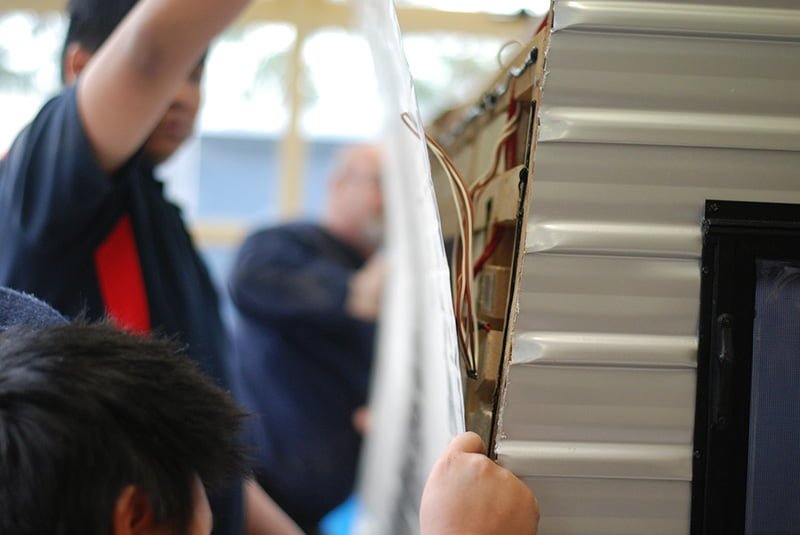 It is not my wish to sound like an apologist for the RV industry, but it’s worth acknowledging that a caravan, camper trailer, fifth wheeler, etc., are largely hand-built products – the construction process is far removed from what you’d see on an automotive production line.
It is not my wish to sound like an apologist for the RV industry, but it’s worth acknowledging that a caravan, camper trailer, fifth wheeler, etc., are largely hand-built products – the construction process is far removed from what you’d see on an automotive production line.
That said, if I’d dropped $70,000 on a new van, I’d rightly expect it to be pretty darn perfect.
“By and large, we have seen greater awareness and understanding by industry businesses of their obligations and I have heard of many instances where consumer issues are dealt with swiftly and to the customer’s satisfaction, as you would expect,” Mr Lamont said. “We see many happy consumers throughout the industry, as evidenced by the strong positive trend in registrations and visitor nights.
“The challenges we are seeing in some cases are structural problems with the legislation itself and the dispute resolution limits in some states; however, an RV purchase is also one of the highest value items a consumer will ever purchase in their lifetime and one which is tied to a high level of anticipation, excitement and aspiration. It is quite understandable that there is a high level of emotion attached to an RV purchase. Our responsibility is to try to manage the customer’s expectation through the RV’s ‘life cycle’ and improve interactions between consumers and industry businesses wherever possible.”
WHERE TO NEXT?
So, what now? Where does the responsibility for compliance begin and end? On the one hand, the RV industry associations, along with the scrupulous manufacturers who constitute the majority, are aware there are some shonky operators. Programs are in place and gaining traction to improve across-the-board compliance with the ADRs and Australian Standards. One hundred percent compliance is in everyone’s interest.
But on the other hand, there seems to be a lack of legislative firepower and/or a sufficient structure through which government authorities can weed out the Dodgy Brothers of the Australian RV industry.
Is the best advice caveat emptor? No, though the buyer should research the manufacturer of their favoured RV and ask lots of questions. Australia has among the most strict RV manufacturing standards and requirements in the world and, in my experience, there are a lot of manufacturers who care too much about their reputation, and the safety of their customers, to do the wrong thing. In the search for the perfect van, that counts for a lot.


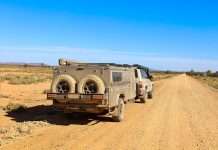
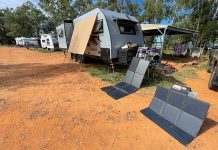
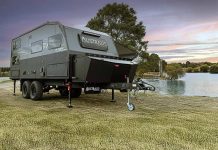

Your RVMAP so called experts should read the ADR’s and when reporting a fault make sure they read more than one paragraph of a rule. Also before they make weight statements they should also read their own handbook as they make them selves look like fools.
You have a LONG way to go……………….
Just because you have slept in a caravan does not make one all knowledgable. X is an unknown quantity & a spirt is a drip under pressure (Expert). The result of all this = the customer. I understand that things go wrong, but it needs to be less than more. These are a minimum that to be included in the purchasers documents; Engineers Cert for the Chassis, Mechanical Cert for brakes and all associated components, Cert of electrical safety, Plumbing Cert, Building Cert after all it is a house on wheels.
Document to the owner explaining the definition of Tare, GVM, etc and the owner signing that they have read and understand. I am presently researching an impending purchase and I will be demanding these. I am sure there will be at least one company that will comply if they want my business. Only in this way will the punters out there will influence the necessary change.
Regards to all
Pete
Hi Pete, thanks for your comment. I’m not sure who you’re referring to in terms of being all knowledgable. Though I have indeed slept in many caravans, and have towed them and worked with them for many years, I would never claim to know it all. We are all always learning.
I certainly agree that it’s a good idea to request (demand) all relevant certificates and other documentation.
Max I should have clarified a bit better. I was not referring to you, more to the flyby nighters that are flooding the industry. Great online Mag
Regards
Thanks Pete. I agree with you. Happy caravanning, mate.
All that was mentioned above is all very well, but a lot of the names mentioned on the Facebook pages are well known brand names that appear in adds in glossy magazines. They would not be classed as “fly-by-nighters” in any way. The perception that we get (possible first time new buyers) is that when we drop $70k on a new van and we have a problem, we don’t want to be brushed off by some sales person who is having a bad hair day. What sort of recourse do these people have having bought a brand name van post 2013 and have a major problem which means they can’t use their van on the road? Who pays the salaries of the RVMAP inspectors, the caravan industry? Self regulation, we know how well that goes! Until the industry can demonstrate that they really care about their customers our $70k will stay in the bank.
Well said Iain
I too want to buy a second hand van, but I am afraid that I’ll pick up a lemon, that a shonky dealer is selling on consignment for a disgruntled client.
I’m concerned even more now that there is an admission in the article above that there are a few bad apples and thanks to social media we can pick the ones with the bad hair day or the fault that occurs only occasionally
It is also stated in the article above that the industry is improving, in my opinion I don’t think so
After spending $71k on a new van that has been in storage for 18 months whilst we battle the manufacturer (who has been operating for 30+ years) I can say that self regulation does not work and the RVMAP badge isn’t worth the material its printed on. I wrote to the CIAA twice between December 2015 and January 2016. They never responded. This got brought to their attention again in December 2016. I had a conversation with Mr Lamont and then provided him with details of our issue. He never responded. So not really sure how the CIAA are improving anything in this industry. From where I stand they are apologists for it and are only concerned with their own salaries.
Hi Max .
AS3001. 2001 i believe should be read and used not only by caravan manufacturers but also writers for and to magazines that are read by potential purchasers of caravans.
Cheers John .A happy cravaner in an ausie caravan .